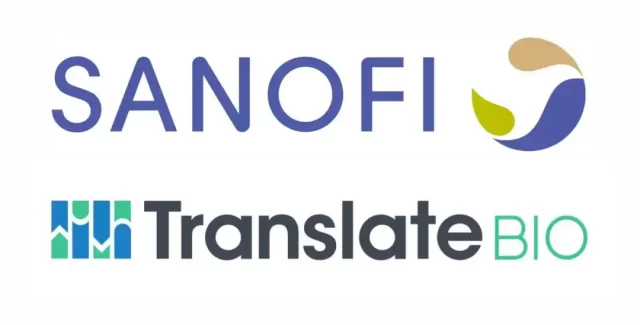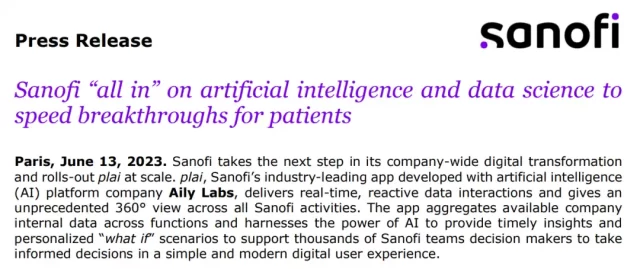No hope of developing the first generation mRNA influenza vaccine?
- A Single US$2.15-Million Injection to Block 90% of Cancer Cell Formation
- WIV: Prevention of New Disease X and Investigation of the Origin of COVID-19
- Why Botulinum Toxin Reigns as One of the Deadliest Poisons?
- FDA Approves Pfizer’s One-Time Gene Therapy for Hemophilia B: $3.5 Million per Dose
- Aspirin: Study Finds Greater Benefits for These Colorectal Cancer Patients
- Cancer Can Occur Without Genetic Mutations?
No hope of developing the first generation mRNA influenza vaccine?
- Red Yeast Rice Scare Grips Japan: Over 114 Hospitalized and 5 Deaths
- Long COVID Brain Fog: Blood-Brain Barrier Damage and Persistent Inflammation
- FDA has mandated a top-level black box warning for all marketed CAR-T therapies
- Can people with high blood pressure eat peanuts?
- What is the difference between dopamine and dobutamine?
- How long can the patient live after heart stent surgery?
No hope of developing the first generation mRNA influenza vaccine? Sanofi announces strategy adjustment.
The most well-known companies in the mRNA vaccine field, such as Moderna, Pfizer, and CureVac, are all developing mRNA influenza vaccines.
However, Sanofi, during a recent vaccine investor event, candidly stated that the first generation mRNA influenza vaccine “will not succeed” and expressed that they are formulating plans to develop more advanced candidate mRNA influenza vaccines to overcome the limitations of existing technology.
During this event, vaccine giant Sanofi presented trial data for their mRNA influenza vaccine based on hemagglutinin, along with their approved quadrivalent influenza vaccine Fluzone. Similar to the clinical trial data released earlier this year by Moderna for their mRNA influenza vaccine, Sanofi’s mRNA influenza vaccine performed well against influenza A virus but showed poor performance against influenza B virus.
The era of the COVID-19 pandemic, which brought significant profits to mRNA vaccine companies, has passed.
Moderna, Pfizer, and other companies have already shifted their focus to influenza vaccines. Other vaccine giants that lagged behind in mRNA COVID-19 vaccines and new players in the mRNA field are also entering the influenza vaccine domain, hoping to gain a share in this yet-to-be-settled field worth billions of dollars within the next decade.
In August 2021, Sanofi announced the acquisition of mRNA vaccine development company Translate Bio for $3.2 billion to address their lag in the mRNA vaccine field. The main project Sanofi is now prioritizing after the acquisition is the mRNA influenza vaccine.

In April 2023, Moderna was the first to announce the results of Phase 3 clinical trials for their mRNA influenza vaccine, mRNA-1010. The results showed that mRNA-1010 performed well against influenza A virus but had poor performance against influenza B virus.
This outcome is similar to the results recently announced by Sanofi, which stated the need to find a more comprehensive solution to ensure better protection against influenza B virus with mRNA vaccines. However, Sanofi also mentioned that their candidate mRNA influenza vaccine performed well against influenza A virus and had lower adverse reactions compared to competitors, indicating that Sanofi has a competitive mRNA platform.
Nevertheless, Sanofi executives expressed that even if granted market authorization, the first generation mRNA vaccines would not achieve commercial success.
The $2.8 billion acquisition by Sanofi two years ago, as well as subsequent billions of dollars in investments in the mRNA strategy, now appears to be almost a failure.
However, Sanofi will continue to focus on the development of the next generation mRNA influenza vaccine. As for how to address the current issue of poor efficacy against influenza B virus with mRNA influenza vaccines, Sanofi remains tight-lipped.
Sanofi stated that competitors have not disclosed how they are addressing this problem, while Sanofi has a solution but currently does not intend to share it. Furthermore, Sanofi does not limit mRNA technology to influenza, as their therapeutic mRNA vaccine for acne will begin Phase 1/2 clinical trials this year, and an mRNA vaccine targeting Chlamydia is also under research.
Translation: CEO Paul Hudson of Sanofi stated, “Our goal is to become the first pharmaceutical company to extensively utilize artificial intelligence, providing our employees with tools and technologies focused on insights, enabling them to make better daily decisions.” The use of artificial intelligence and data science has already supported our team’s efforts in accelerating drug discovery, enhancing clinical trial design, and improving the manufacturing and supply of drugs and vaccines. We have only just scratched the surface in terms of how to leverage these disruptive technologies to achieve our ambitious vision of transforming medical practices.
It is worth mentioning that on June 13, 2023, Sanofi announced the “All In” initiative in artificial intelligence and data science to bring accelerated breakthroughs for patients.

CEO Paul Hudson of Sanofi stated, “Our goal is to become the first pharmaceutical company to extensively utilize artificial intelligence, providing our employees with tools and technologies focused on insights, enabling them to make better daily decisions.”
The use of artificial intelligence and data science has already supported our team’s efforts in accelerating drug discovery, enhancing clinical trial design, and improving the manufacturing and supply of drugs and vaccines.
We have only just scratched the surface in terms of how to leverage these disruptive technologies to achieve our ambitious vision of transforming medical practices.
References :
https://www.fiercebiotech.com/biotech/first-gen-mrna-flu-vaccines-wont-win-sanofi-execs-admit-they-retool-strategy
https://www.sanofi.com/en/media-room/press-releases/2023/2023-06-13-12-00-00-2687072
No hope of developing the first generation mRNA influenza vaccine?
(source:internet, reference only)
Disclaimer of medicaltrend.org
Important Note: The information provided is for informational purposes only and should not be considered as medical advice.



